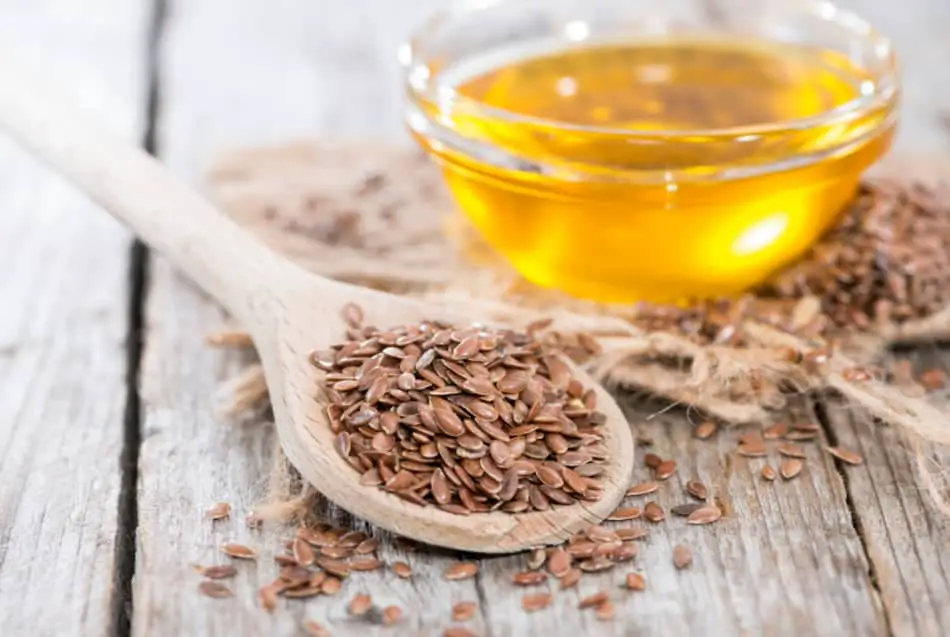Many people have questions about whether linseed oil is safe for use on leather. There are many blogs and forums with conflicting opinions, so it’s hard to know what to think. I will discuss the pros and cons of using linseed oil on leather in this post because I want you to make an informed decision before deciding if you want to use it or not!
So, can you use linseed oil on leather? You can use linseed oil to condition your leather goods such as boots, bags, purses, etc. Linseed oil in addition to moisturizing your leather goods will also add a shine and luster over the surface of your leather. Although linseed oil will help to nicely oil and condition your leather, it will leave a sticky residue on the surface of the leather if not used sparingly.
To learn the pros and cons of using linseed oil on your leather items, keep reading this article.
The Pros Of Using Linseed Oil On Leather
1. Linseed Oil Is An Excellent Moisturizer
One of the first benefits of using linseed oil on your leather is that it can help to moisturize your leather so that it doesn’t dry out. Linseed oil is an excellent moisturizer that helps to keep your leather well hydrated and soft.
Keeps moisture locked in so that natural oils don’t dry out from the leather fibers – which can loosen fibers over time. This ultimately helps to prevent the leather from cracking or splitting.
So, if you want to maintain the life of your leather items then it’s good for them to be regularly conditioned with linseed oil. Another great use for linseed oil is that it can be used to break into leather gloves, boots, etc due to its moisturizing effects.
2. Linseed Oil Contains Natural Ingredients
Leather items are among the most frequently used items around the home or office and because of that, it is often the most closets thing to our skin. So loading up leather goods with a lot of chemical-based products may not be the smartest thing to do.
Linseed oil also has natural ingredients which makes it safe for leather goods that are made from different types of leather materials such as cowhide, lambskin, reptile skins, and other exotic leathers.
It does not have any harmful effects on these material types when they are used in small doses. Meaning, linseed oil is natural and has a non-toxic substance.
This is why something as organic and natural as linseed oil comes in pretty handy. Linseed oil contains natural ingredients which make it safe for use for leather and the user. Linseed oil is safe for use with leather especially when it is applied in moderation.
3. Linseed Oil Adds Shine And Lustre To Leather Surfaces
Another reason that makes the application of linseed oil on leather worthwhile is that it adds a beautiful shine and luster to the surface of leather goods.
When you apply linseed oil on the surface of your leather items, it absorbs well into the fibers on the leather item, and then it leaves a nice finish on its surface to give them a nice and lustrous look.
So if you are out looking for an inexpensive and natural way to make your leather goods more beautiful, then all you need is some good old-fashioned linseed oil!
4. Linseed Oil Protection From The Elements
One of the best things about using linseed oil on your leather items is that not only does it help keep them from drying out due to exposure to heat or moisture but also protects against the elements.
Linseed oil’s ability to repel water makes washes with soap and water very easy as well as prolonging time between coatings; this means that even when rain hits your bag in broad daylight, there’s no need for panic because there will be something left.
If you want to protect your investment in high-end vintage leather items then applying this organic product can help keep their condition stable over time.
5. Linseed Oil Keeps Leather Soft And Supple
Another benefit to using linseed oil on leather is that it helps to make the leather soft and supple. This is because linseed oil contains a high proportion of natural oils which condition the leather and make it more workable.
The linseed oil actually penetrates deep into the pores in order to moisturize, lubricate, and protect the fibers inside.
When you put your hand on some calfskin shoes after they’ve been treated with this product for a while, then rub them between your fingers; they’ll feel as soft as butter because linseed oil has penetrated so deeply that even when dry there’s still plenty left behind!
6. Linseed Oil Can Prevent Mold Growth And Humidity Damage
Now, this is something that personally impresses me about using linseed oil on leather goods. Linseed oil can prevent mold growth on your leather items and the way it does this is by penetrating deep into the pores of the leather and filling them with enough linseed oil to prevent future mold from growing.
This is super useful as mold growth on leather can be very difficult to get rid of and can lead to serious discoloration of the leather surface.
Linseed oil is able to prevent mold growth because linseed oil does not allow for moisture to penetrate deep into the leather and cause mold growth.
It fills the pores on the surface of the leather while creating some form of protection against water damage from humidity which normally causes mold and mildew growth.
7. Linseed Oil Is Very Easy To Apply
What’s even more, linseed oil is extremely easy to use on leather goods. All you have to do is apply a small amount of linseed oil with your fingers onto the surfaces that need protecting or moisturizing.
The application of linseed oil is also very easy because it just needs to be applied with the use of your hands or by using an applicator like a brush, sponge, cloth, etc. No special tools needed!
The Cons Of Using Linseed Oil On Leather
1. Linseed Oil Does Not Protect Leather Against Stains
Doesn’t offer any protection against dirt, water, or other things that could stain your leather. This is because, linseed oil doesn’t sit on top as silicone or waxes do.
Instead linseed oil after it has been applied sinks not only into the grains of the leather but deep into the fibers.
2. Leaves a sticky residue if put on too thick
We all hate it when our leather items feel sticky instead of luxurious and rich feeling. Applying linseed oil on your leather items can result in the leather becoming very sticky especially if you use more than what’s needed.
3. Linseed Oil Deteriorates Latex
A lot of leather items today like leather car seats, bags, jackets, will often come with some form of protective coating like latex. This coating is what keeps your item a lot more resistant while looking new and protected.
Linseed oil, although it does great for leather, it is important to note that linseed oil can deteriorate latex. This means if there’s any coating on the leather furniture or seat then you do not want to apply this substance directly on them!
So always do a spot test beforehand before applying anything like this anywhere near where food could come into contact.
4. Linseed Oil Stains Clothes
Linseed oil when you apply it to leather items could get transferred to clothes and other things that come into contact with it. If you’re wearing a white shirt and the oil gets on it, then even after washing it off, there will still be a stain.
So you want to make sure you buff off any excess oil from the surface of the leather and allow the leather to dry thoroughly before putting the leather item to use.
5. Linseed Oil Will Not Penetrate If Leather Is Saturated
Another downside to using linseed oil on leather is that it can’t penetrate as deeply into the leather if it is already saturated with water or other substances.
You may need more than one coat and do multiple applications to completely condition or moisturize the leather.
6. Linseed Oil Can Rot
Linseed oil can also rot when applied to leather due to its high natural oil content. The linseed oil will break down the leather if it is applied too thickly or repeatedly, ultimately causing damage to the material itself.
Maintaining a good coat of finish on your leather can protect against this sort of rot and deterioration.
To do so, you’ll want at least one coat each month during periods when humidity levels are higher than usual (i.e., summer).
You should also recoat once per year as part of your regular maintenance routine in warm climates where humidity may be an issue for several months of the year.
7. The Smell
Not everyone is a fan of the smell of linseed oil. So using linseed oil on your leather can be a bad idea if you have a sensitive nose. Linseed oil, especially, boiled linseed oil will usually not have a very pleasant smell.
However, its smell will slowly dissipate with time although the smell can also linger if the linseed oil is applied too thickly or repeatedly.
Final Thoughts
The pros of using linseed oil on leather outweighs the cons with using linseed oil on leather if used sparingly.

